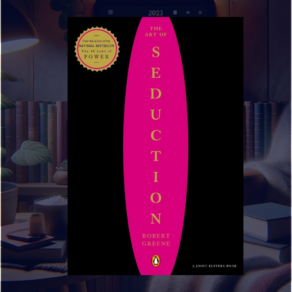Art of War is one of the most important strategic and philosophical works in history. It is believed to have been written by Sun Tzu, a Chinese military general, strategist, and philosopher in the 6th century B.C. Its insights into the psychology of war, strategy and military tactics are still relevant today.
The core wisdom of Sun Tzu is that one must “know thyself, know enemy” in order to gain victory. Sun Tzu said “If you know your enemies and yourself, you will not be imperiled in a hundred battles; if you do not know your enemies but do know yourself, you will win one and the lose one; if you do not know your enemies nor yourself, you will be imperiled in every single battle.”
[Related: Last Night at The Telegraph Club Summary]
By understanding the enemy’s tactics and plans as well as your own strength and weaknesses, Sun Tzu believed that you could gain an advantage on the battlefield. He also emphasizes the importance of deception, surprise and flexibility in war.
Sun Tzu said “All warfare is based on deception. Hence, when we are able to attack, we must seem unable; when using our forces, we must appear inactive; when we are near, we must make the enemy believe we far away; when far away, we must make him believe we are near.”
Above all else, Sun Tzu stressed the need for a leader to take decisive and swift action in order to avoid disaster. Sun Tzu said “Supreme excellence of breaking the enemy’s resistance without fighting is to be swift as the wind, silent as a forest, fierce as fire, and unmovable as a mountain.”
The Art of War is still studied by military leaders and strategists around the world as a timeless guide to success in warfare. Its insights into the psychology of war, strategy and military tactics are still applicable in today’s complex world. Sun Tzu’s teachings provide timeless wisdom for those looking to lead with courage, confidence and integrity.
In addition to these strategies, Sun Tzu also talks about the importance of understanding one’s own self and how that can be a powerful tool in any battle. He states, “The skillful leader subdues the enemy’s troops without any fighting; he captures their cities without laying siege to them; he overthrows their kingdom without lengthy operations the field.”
Main Takeaways from Art of War
Here are some of the main takeaways from the Art of War:
- Know yourself and your enemy: Understanding your own strengths and weaknesses, as well as those of your enemy, is essential to achieving victory.
- Preparation is key: Proper planning and preparation before a battle can help you avoid costly mistakes and increase your chances of success.
- Use deception and strategy: The book emphasizes the use of deception and strategy to outmaneuver your opponent and gain an advantage.
- Adapt to changing circumstances: The ability to adapt to changing circumstances and adjust your strategy accordingly is crucial to success in war.
- Use resources wisely: Sun Tzu stresses the importance of using resources efficiently and avoiding waste.
- Avoid unnecessary conflict: Winning without fighting is the ultimate goal, and unnecessary conflict should be avoided whenever possible.
- Leadership is essential: Effective leadership is critical to the success of any military campaign, and the book provides guidance on how to be a successful leader.
Quotes from Art of War
Here are some important Art of War quotes:
“The wise warrior avoids the battle.”
“All warfare is based on deception.”
“The skillful soldier does not raise a second levy, neither are his supply-wagons loaded more than twice.”
“Do not repeat the tactics which have gained you one victory, but let your methods be regulated by the infinite variety of circumstances.”
“The supreme art of war is to subdue the enemy without fighting.”
“Victorious warriors win first and then go to war, while defeated warriors go to war first and then seek to win.”
“We cannot enter into alliances until we are acquainted with the designs of our neighbors.”
“What the ancients called a clever fighter is one who not only wins, but excels in winning with ease.”
“Treat your men as you would your own beloved sons. And they will follow you into the deepest valley.”
“If your opponent is of choleric temper, seek to irritate him. Pretend to be weak, that he may grow arrogant.”
“Success in warfare is gained by carefully accommodating ourselves to the enemy’s purpose.”
“If the enemy leaves a door open, you must rush in.”
“The experienced soldier, once in motion, is never bewildered; once he has broken camp, he is never at a loss.”
“It is easy to love your friend, but sometimes the hardest lesson to learn is to love your enemy.”
“There is no instance of a nation benefitting from prolonged warfare.”
I hope you find this Art of War summary inspiring and helpful.




